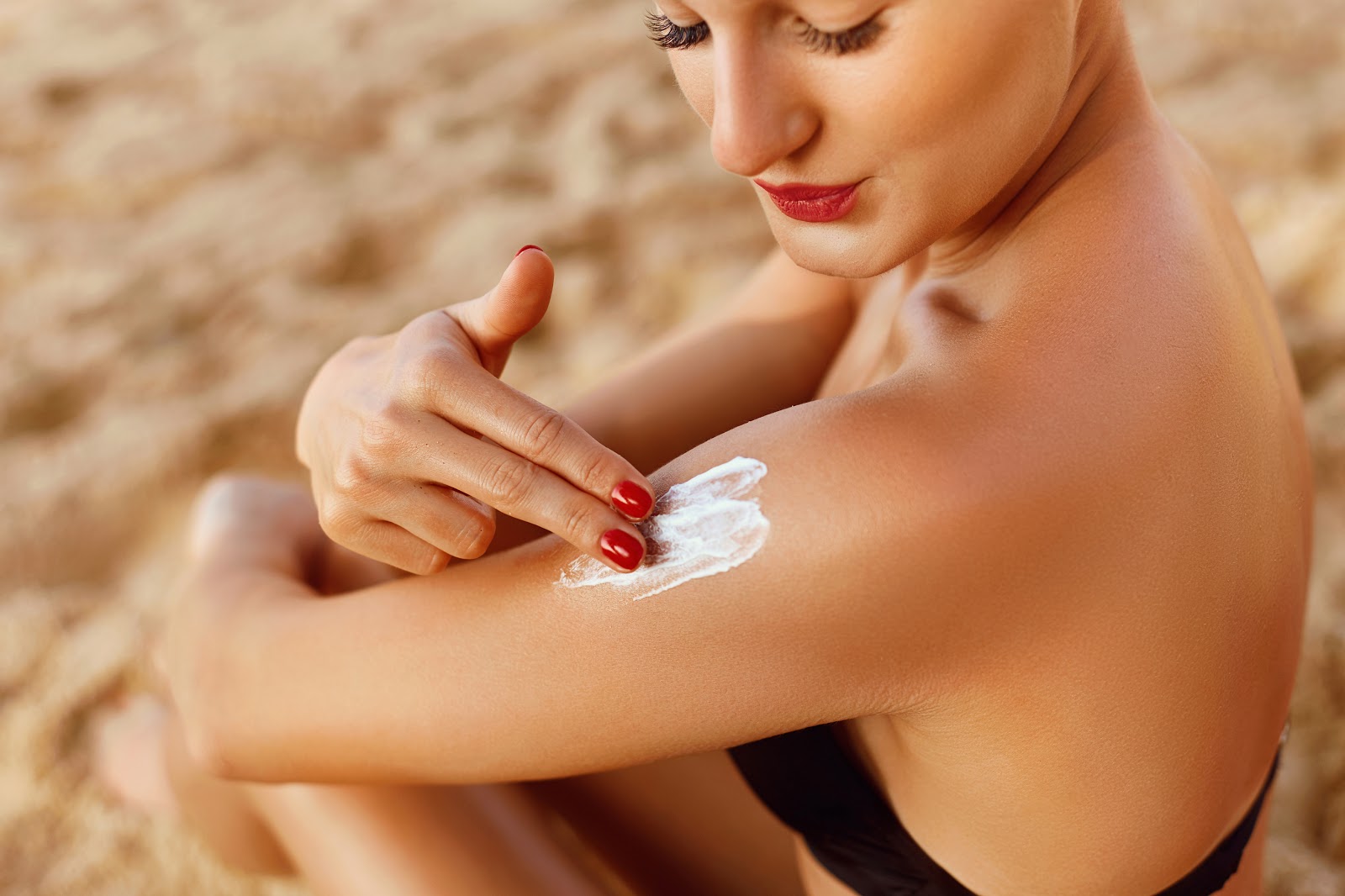
Check your bottle for these cancer-causing chemicals

—-Important Message—-
This “rockiness” hormone works 113 times better than testosterone
Next time you want to boost your “rockiness” or bedroom performance, skip the testosterone supplements…
Instead, try this brand new natural hormone I’ve discovered that is even better for erections than testosterone.
This is super good news for men who think their testosterone is low — now you can get the best erections of your life without worrying about your T level.
Because as I’ve discovered, testosterone isn’t the end all, be all when it comes to getting great “rockiness.
Here’s the true “rockiness” hormone that works 113 times better than testosterone
———-
Is your sunscreen actually increasing your risk of skin cancer?
Skin cancer is a common problem these days.
And many people wear chemical sunscreens in order to avoid contracting skin cancer.
Early sunscreen formulations tended to use a zinc paste that blocked ultraviolet light from hitting the skin.
These days, chemical sunscreens act within the skin itself.
And many of the ingredients of modern chemical sunscreens pose major risks to health.

The American Journal of Public Health published these findings in 2002.
The researchers completed a search of the scientific literature on sunscreen and skin cancer.
That search resulted in 11 high-quality human studies.
“11 published articles composed the database for the present analysis.”
The combined database included information on over 9,000 participants.
When the researchers analyzed all this data together, they found no relationship between sunscreen use and skin cancer risk.
“Combining studies that used non-heterogeneous data yielded a summary RR of 1.01, indicating no association between sunscreen use and development of malignant melanoma.”

A year later, researchers at the University of Iowa carried out a similar analysis.
Those researchers noted that sunscreen was initially developed to prevent sunburn and not skin cancer, as is now commonly understood.
“Originally developed to protect against sunburn, sunscreen has been assumed to prevent skin cancer.”
There is a lot of conflicting research on sunscreen.
Many studies have actually shown that sunscreen could increase the risk of skin cancer.
“However, conflicting reports include claims that sunscreen increases risk for melanoma.”
These researchers collected articles on human research published between the 1960s and 2003.
This research only includes studies that had information on sunscreen use prior to the diagnosis of melanoma skin cancer.
The analysis used three independent reviewers to iron out the inconsistencies in some of the studies.
“Two independent reviewers extracted data. Inconsistencies were re-reviewed until agreement was achieved. When necessary, a third party resolved discrepancies.”
In the end, they found 18 high-quality articles on the subject.
Similar to the previous study, they found no relationship between sunscreen use and the risk of skin cancer.
“Pooled odds ratios for…use among 18 heterogeneous studies did not support an association between melanoma and sunscreen use.”
The researchers looked at the effect of duration of sunscreen use.
That analysis showed that it doesn’t matter how long you use sunscreen for…
It still does not protect against skin cancer.
“The lack of a dose-response effect with frequency of use (never, sometimes, or always) or years of use provided further evidence of a null association.”

More recently, scientists at the Faculty of Medicine, Federal University of Rio Grande in Brazil carried out another review. Their findings were published in the European Journal of Dermatology.
This analysis included human studies that looked at sunscreen use and skin cancer up to 2017.
They found dozens of human studies, including one random-controlled trial.
Their final analysis included 29 studies, comprising over 300,000 people.
“We included 29 studies (25 case-control, two cohort, one cross-sectional, and one controlled trial) involving 313,717 participants (10,670 cases).”
This large meta-analysis found no significant relationship between sunscreen use and skin cancer risk.
“The overall meta-analysis did not show a significant association between skin cancer and sunscreen use.”
They further analyzed the data looking at the two major types of skin cancer – melanoma or non-melanoma skin cancer.
No relationship was found between sunscreen use and melanoma or non-melanoma.
“Neither melanoma (25 studies; 9,813 cases) nor non-melanoma skin cancer (five studies; 857 cases) were associated with sunscreen use.”
It seems that sunscreen does not protect against skin cancer.
“This systematic review does not confirm the expected protective benefits of sunscreen against skin cancer in the general population.”
Some people are now avoiding the use of sunscreen because of concerns over the health effects of compounds contained in the products.
Sunscreens are effective at preventing sunburn – which, of course, we should avoid.
Recent research has shown that vitamin B3/niacinamide, ginseng, as well as tea and coffee consumption are significantly associated with a lower risk of skin cancer.
You should always consult a healthcare practitioner about diagnosing and treating any health-related problems.
—-Important Message—-
Beware this toxic chemical that causes serious memory loss in almost all men — and this toxic chemical is in 73% of all grocery items you may be buying

I’ve discovered a toxic chemical hiding in many of our foods and drinks.
I call it the Killer Lipid.
And this Killer Lipid seeps into the bloodstream where it travels to the brain…
It manages to slip under the blood-brain barrier and settle in our brains, where it wreaks havoc.
The Killer Lipid has been linked to cognitive decline, memory loss, even Alzheimer’s.
Yet nobody is warning men. Not even doctors.
———-
